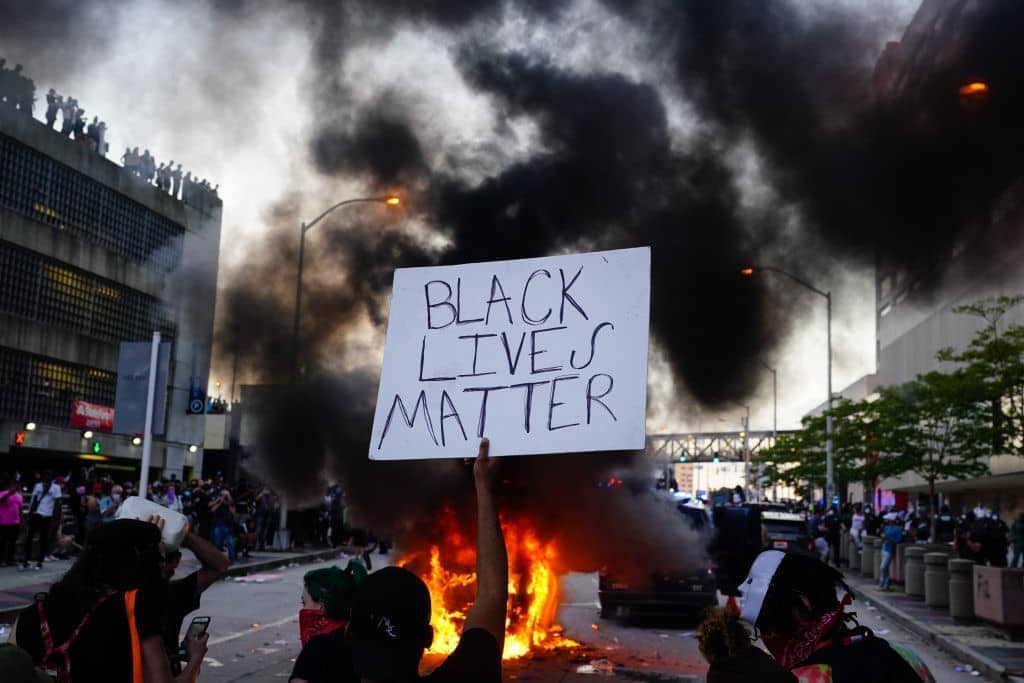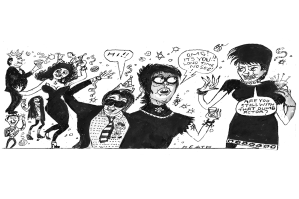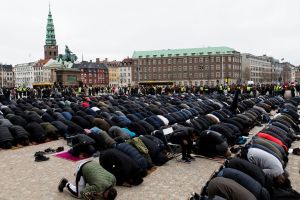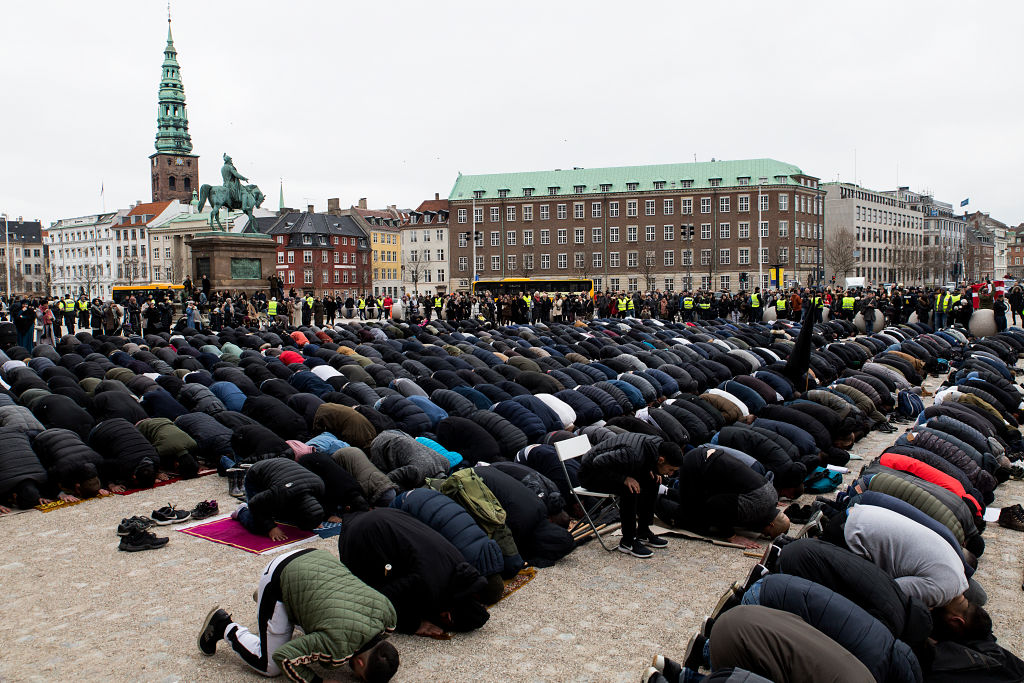It can be hard to remember just how strange things were during the pandemic. Every day the front pages covered the virus spreading from city to city in minute detail, while politicians and citizens alike excoriated each other for failing to show sufficient concern about the disease.
With the benefit of those two years, it’s now — probably — just about safe to say it: the summer of 2020, which was dominated by the Black Lives Matter movement, really was quite strange. In response to George Floyd’s death in Minnesota, politicians across the West took the knee in solidarity, protesters turned out in force even though pandemic restrictions were still in place, and Britain’s leader of the opposition Keir Starmer apologized profusely for referring to a “Black Lives Matter moment” — which apparently dismissed the campaign’s importance.
Two years on, he was clearly correct. Take a look at the Google Trends graph if you don’t believe me. There was a monumental spike in people searching for “Black Lives Matter” in June 2020, which quickly decayed back to the baseline by 2021. The Current Thing moved on, and with it people’s attention. That doesn’t mean it didn’t leave a mark.
Various American cities, states and overseas colonies changed their policies. Statues were smashed. The festive and “mostly peaceful” protests over the summer racked up a couple of billion dollars in property damage. Regions which slashed police funding as part of the “defund” movement decided to boost police numbers again once it became apparent that crime data was spiking. And, of course, an enormous pile of corporate Danegeld rolled into organizations affiliated with the BLM movement.
One of the organizations which benefited most was the Black Lives Matter Global Network Foundation, which raised $90 million in 2020. Now newly released tax records show how that money has been spent. Of the sum, $26 million went in grants to organizations and families. Another $1.2 million went on lobbying Congress on measures such as abolishing the Drug Enforcement Agency and ending life sentences.
But $5.8 million was spent on a mansion in Los Angeles. Just under $1 million was paid to a company owned by the father of co-founder Patrisse Cullors’s child, to “produce live events” and provide “creative services.” Another $840,000 was paid to her brother for security services.
Scaling an organization up is difficult at the best of times; it is almost impossible when it happens at such speed and without any warning. But when a moment demands that donations are made to a movement, and that movement is an amorphous grouping of individuals, hashtags, and organizations, the money has to end up somewhere. To corporate donors it doesn’t really matter whether or not the receiving organization is ready for an influx of funds on that level; corporate donations are less about effective altruism than buying PR.
If this wasn’t about corporate PR, it’s questionable whether the entire BLM movement would have received such large donations. It’s true that BLM protests decrease police violence. One study suggested that cities which had BLM protests in the area had a reduction of nearly 300 fatal police shootings. The problem is that reducing police shootings is usually achieved by making the police less of a presence. For that reason the same cities saw somewhere between 1,000 and 6,000 more murders than they would have otherwise.
What happens in the United States has a tendency to make its way over the Atlantic; you just have to look at the way the BLM protests leapt from Minneapolis to London. Or the way that US police violence makes black Londoners less trusting of the Metropolitan Police. It would be lovely to think that the next time a thuggish officer commits an act of violence on camera, us Brits would be able to feel moral outrage at their actions without translating that into domestic sentiment, but I’m not optimistic. For better or worse, we’re all living in America now.
This article was originally published on The Spectator’s UK website.

























